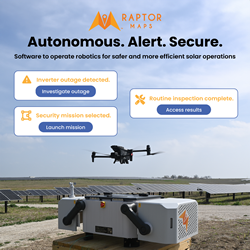Public Private Partnerships for renewable energy, by Ruth P Briones
"Public Private Partnerships (PPPs) involving local government units (LGUs) and private renewable energy developers create commercially viable enterprise at the same time address the urgency of addressing the Climate change phenomenon", Briones said.
Speaking before more than 300 businessmen, local government officials and traders at the 20th Mindanao Business Conference on September 8, 2011 in Pagadian City, Ruth P Briones called on her colleagues in the private sector to lead in the development of renewable energy projects and support the global efforts in Climate Change mitigation.
Ruth P Briones, the Chair and Chief Executive Officer of Greenergy Solutions and Convenor of the Zero Waste Philippines Forum, said that Philippines has enough laws that provide all the supports and corporate incentives in the development of alternative clean energy.
"Public Private Partnerships (PPPs) involving local government units (LGUs) and private renewable energy developers create commercially viable enterprise at the same time address the urgency of addressing the Climate change phenomenon", Briones said.
The Greenergy CEO noted that Renewable energy with LGUs as Public partners will bring revenues and spur economic developments in the countryside at the same time creating improved ecological climate. It was added that Greenergy Solutions has entered into PPP Agreements with seven LGUs in the development of Waste-to-Energy Projects that provide long term solution to the waste disposal and power needs of the local partners.
Briones declared that under the Renewable Energy Law (Republic Act No.9513), fiscal and non-fiscal incentives are provided in order that investments in Renewable Energy projects would be viable and attract foreign investments. These incentives are also provided under the Foreign Investment Act which will consider renewable energy projects as "investment priority projects (IPPs).
Public Private Partnerships in the Philippines started in 1990 during the power crisis that resulted into economic shutdown. Republic Act No. 6957, the Build-Operate-Transfer (BOT) law was passed which was the basis for creation of Public Private Partnership enterprises creating Independent Power Producers which tapped the private sector in solving the power crisis in 1994.
Briones reiterated that Public-private partnership can play a significant role in infrastructure development. Noting that the Philippines is the pioneer of PPPs in the ASEAN region. Several countries have successfully used the Build-Operate-Transfer(BOT) approach, a particular form of public sector-private sector partnership to address the infrastructure needs of the economy.
PPP scheme is seen as an option to outsource public projects to the private sector, which takes charge of design, financing, construction and operation of the facility under a concession agreement. During the concession period, the private party operates and maintains the facility. At the end of a fixed cooperation period, the ownership, free of any encumbrances or liens, is transferred to the government at no cost.
Featured Product

